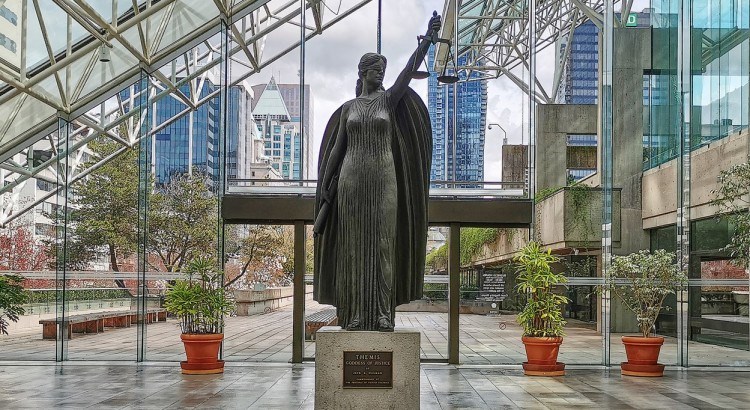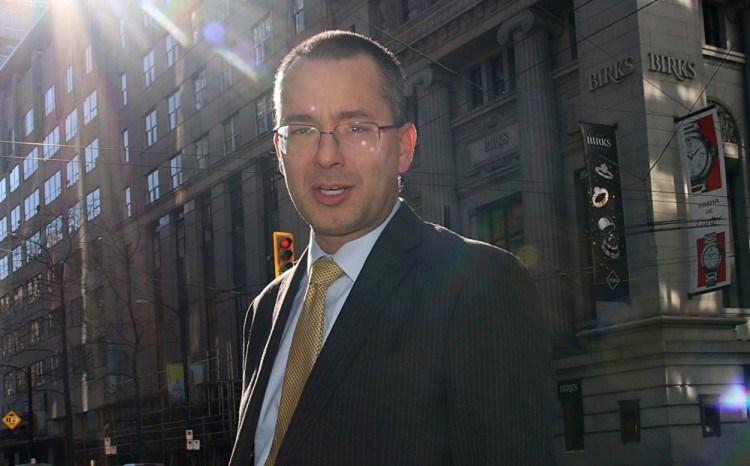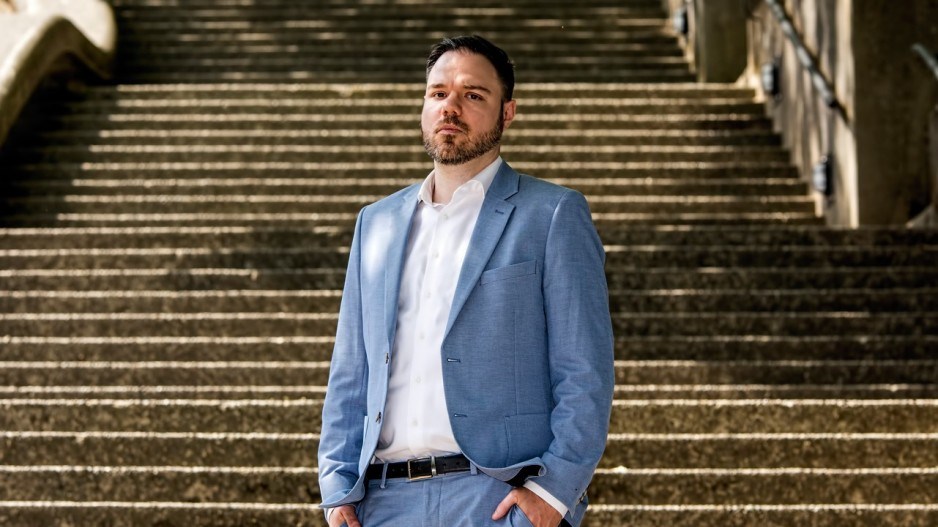saąúĽĘ´«Ă˝’s court system is riddled with challenges that some say put business owners’ and the broader public’s ability to access justice at risk.
Critics say problems stem from the justice system’s reluctance to embrace technology. Others point fingers at the federal government, which has left unfilled 11 openings for saąúĽĘ´«Ă˝ Supreme Court judges, and two saąúĽĘ´«Ă˝ Court of Appeal judges.
Social problems also play a role. Unhoused residents, grappling with drug and addictions issues, and in a cycle of committing crimes, may repeatedly face charges in court – a pattern that diverts limited judicial resources.
One senior lawyer told BIV that if surgeons from 100 years ago were transported to the present day, they would be lost in a modern emergency room. Transport a lawyer from 1923 to today, and that lawyer would be right at home – because so little has changed technologically.
The big beefs for those who say that the justice system needs to better adapt to the digital age include the fact that:
• paper documents, not PDF files, are required when presenting evidence;
• lawyers are customarily required to appear in person and are not allowed to use video technology that worked well during the pandemic; and
• attempts to schedule court appearances must be done by phone, and not by using an online platform.
What’s at stake is the ability to access justice in a timely and affordable way. For business owners, long litigation timelines, delays and scheduling challenges can create significant costs and uncertainty. For small business owners in particular, these issues might at times put the pursuit of justice out of reach financially.
saąúĽĘ´«Ă˝ Attorney General Niki Sharma told BIV that her government has made investments to modernize saąúĽĘ´«Ă˝’s court system and to increase its internet capacity.
“The courts operate independently,” she said. “There’s a clear line when it comes to decisions of when things are in person, and when they are hybrid [video link and in person] that are based on the chief justices’ and the chief judges’ decision making.”
Her role, she said, is to equip courts to enable judges to choose to use technology.
Refresh Law founder and lawyer Oscar Miklos told BIV that the court system at best has been making baby steps in allowing lawyers to use digital documents.
“The [saąúĽĘ´«Ă˝] Supreme Court allows the electronic filing of documents, but once you appear before the judge, there’s still a requirement that you produce a binder of filed documents,” said Miklos, who specializes in real estate law.
“You actually have to pull the files and print copies of the documents that you’re going to be referring to. Then you give them to the judge, who, rather than looking at a computer screen, can open up a binder. Then you walk them through the binder.”
Miklos said he often makes three copies of needed binders – for the judge, for himself and sometimes for opposing counsel.
Allowing PDF files, he said, would be better for the environment as it would eliminate unnecessary paper, but it would also be much cheaper because there would be no paper or printing costs to pass along to clients.
There is also a reluctance to use artificial intelligence (AI) to transcribe audio recordings.
When lawyers appeal saąúĽĘ´«Ă˝ Supreme Court judgments, they get audio files that they are required to provide to authorized transcribers who provide official transcriptions, Miklos said.
Those transcribers often charge daily rates, which can add up. The official transcripts must be printed out for saąúĽĘ´«Ă˝ Court of Appeal judges, which also adds costs, he said.
Software that uses AI, such as Otter.ai, can provide rough transcriptions. BIV spoke with lawyers and judges, however, who said AI technology does not yet provide accurate-enough transcriptions for courts to rely on, and the priority of the justice system should be to ensure that it uses accurate transcriptions, not fast and inexpensive ones.
Courts revert to in-person attendance
Lawyers and witnesses were able to appear before judges via video links during the pandemic, but in many cases, they are now required to appear in person.
Multiple lawyers told BIV that this not only wastes their time, but it means that they have to bill their clients for that wasted time. This hikes their clients’ legal bills, thereby potentially deterring clients from choosing to appeal judgments or to pursue certain legal strategies.
Justice, as a result, may be lost, they said.
One lawyer told BIV that during the pandemic, he was able to work on other matters while he monitored court proceedings from his home office. Then, when his own hearing was ready to be heard, he could take part.
The process now is that lawyers and sometimes clients or witnesses must show up in person and sit in the hearing room, waiting until their own hearing or trial is heard.
saąúĽĘ´«Ă˝ Supreme Court Chief Justice Christopher Hinkson pushed back at lawyers’ assertions that this wastes their time, pushes up legal bills and is an obstacle to administering justice.
“There is a certain je ne sais quoi about seeing somebody in person,” he said, adding that he is better able to assess a witness’s credibility.
When lawyers on both sides of a case are sitting in a courtroom awaiting their turn in front of a judge, they are more likely to speak with each other, he added.
“If you have got them in the same room, they often will go out to the hall and settle,” he said. “Whereas, if they’re not forced to get together, they often seem incapable of picking up the telephone and working things out.”
Settlements, he said, mean that the court system is spared from having to go through some lengthy hearings or trials.
“It’s a question, I suppose, of who do you want sitting around waiting? Judges, who are in short supply, waiting for lawyers to get around to being prepared?” Hinkson said.
Sharma added that a new initiative in saąúĽĘ´«Ă˝ Provincial Court is that defendants can participate via video in virtual bail hearings. This means that jail staff do not need to move them to courthouses from jails, which speeds up proceedings and reduces labour costs.
“Virtual bail has been adopted in a lot of parts of the province and we’re going to continue to expand that,” she said.
Scheduling court dates fraught with delays
Miklos equated the saąúĽĘ´«Ă˝ Supreme Court’s scheduling system for court dates, courtrooms and judges to radio contests years ago.
“In high school I used to listen to a radio station that would have a trivia contest, and I would call in if I thought I knew the answer,” he said.
“I would hope to be caller No. 9 [or whichever caller would be given the chance to answer a question and win a prize.]”
No online scheduling platform exists for lawyers to attempt to book court dates. This is unlike booking a restaurant reservation, which can often be done using an application such as OpenTable.
Lawyers must call a phone number repeatedly until someone answers and helps them to manually book a court date.
Sharma accepted some responsibility for the lack of an online booking system.
“We can do better when it comes to equipping the courts with more digital tools,” she said.

She said her government has a strategy that includes many potential technology improvements to the court system, and “some of them are related to better scheduling.”
The exasperation for lawyers, however, does not end there.
Often, when lawyers and clients appear at their designated courthouse at assigned times, they learn that their court dates have been bumped – often because no judge is available to hear the case, Miklos said.
This waste of lawyers’ time hikes clients’ legal bills, he said.
Lawyers bill clients for travel time to get to courthouses. When lawyers need to travel longer distances to courthouses (because they are not allowed to appear via video) and they then learn that their court case has been postponed to a new date – months away – the legal bills for clients can soar.
saąúĽĘ´«Ă˝’s court system needs more judges
Lawyers, clients, judges and politicians tend to agree that the system needs more judges.
Canadian Justice Minister David Lametti made his first saąúĽĘ´«Ă˝ Supreme Court judicial appointment of 2023 on June 1, when he appointed sole practitioner Bradford Smith to the bench in Kamloops.
Government data shows the province has 11 saąúĽĘ´«Ă˝ Supreme Court judicial vacancies, and two saąúĽĘ´«Ă˝ Court of Appeal judicial vacancies.
“We have two more vacancies imminent, and the [saąúĽĘ´«Ă˝] Court of Appeal has two,” Hinkson told BIV, in reference to upcoming retirements.
“Usually [appointments to] the saąúĽĘ´«Ă˝ Court of Appeal draws from our court, so we could be up to 15 vacancies if no more appointments are made before the end of the summer. We are a court of 97 judges so that is a little over 15 per cent.”
Justice Ministry press secretary Diana Ebadi told BIV in an email that Lametti is aware of concerns that unfilled judicial positions puts access to justice at risk.
The minister, she said, is doing everything he can to fill judicial positions as soon as possible.
“He has spoken with members of the judiciary as well as the bar in saąúĽĘ´«Ă˝ to encourage more people to apply for the bench,” Ebadi said.
Hinkson agreed that more lawyers need to apply to potentially become judges, and the key is to entice them.
saąúĽĘ´«Ă˝ Supreme Court judges will earn at least $307,000 in the 2022-23 fiscal year if the saąúĽĘ´«Ă˝ legislature approves a proposed judicial compensation commission recommendation made in April. They may also be in for retroactive pay increases if the legislature approves recommended salary hikes for the past two years.
Hinkson, however, said salaries are not enough to entice many senior lawyers to apply.
“Senior members of the bar are making an awful lot more money than the judges are, and they’re the ones we would like to become judges,” he said. “It is a financial hit if you have a busy and successful practice.”
Judges also travel a lot, he added.
The saąúĽĘ´«Ă˝ Supreme Court has 32 locations, and Hinkson said that he needs to send his court’s judges to locations that need representation for what can be eight weeks per year.
That means judges need to suspend family commitments and other responsibilities in their home communities when they are away.
Workloads have increased compared with decades ago, Hinkson said, because more cases need to be heard, and trials can be longer.
Resources for support staff have not kept pace, he added.
Further deterring some lawyers from applying to be a judge is that they have honed specialties within certain legal niches, which they enjoy. Becoming a judge means that they would need to hear a range of cases in fields that they would need to educate themselves on, Hinkson explained.
“It’s not attractive to some,” he said.
The federal government has made efforts to increase the number of women, Indigenous people and racial minorities on the bench.
The challenge, Hinkson said, is that the underlying pool of senior lawyers is not as diverse as the cohort that is now being called to the bar.
He did not call out the government’s desire to have a more diverse bench as a main reason for Lametti’s sluggish pace in appointing saąúĽĘ´«Ă˝ Supreme Court judges.
Sharma, who is in her early 40s and is the first woman of colour to serve as saąúĽĘ´«Ă˝’s attorney general, similarly rejected that premise.
“There are a number of people who I could think of that are very talented and are from diverse backgrounds and who have been practising for a long time,” she said.
Legal recruiter and Smith Legal Search managing partner Warren Smith, however, told BIV that the government’s desire to appoint qualified candidates who come from a wide range of ethnic backgrounds, and include women, is playing a role in its slow pace of appointing judges.
“The legal profession is very alive to the importance of diversity,” he said.
“It’s a big part of what they are working on in real time, right now, and you can see that in the emergence of quite a number of chief diversity officers at law firms. That didn’t exist even five years ago.”

The problem, he said is that while the younger generation of lawyers is much more diverse than older ones, it is from among the older generations that judges tend to be appointed.
“You’re not going to appoint a five-year-call [to the bar] to the bench,” he said.
He alluded to how annual cohorts of lawyers are like vintages of wine.
There is only a certain number of lawyers in saąúĽĘ´«Ă˝ who have a specific number of years of experience.
“You can’t bottle more 1990-vintage wine in 2023,” he said. “There’s a simple floor of how many people there are in the group, and if you want to ensure more diversity but they are not interested [in applying to be judges], then there isn’t an option. You can’t just fabricate one out of thin air.”
Canadian judges are required to be members of provincial bar associations, so that necessarily limits who Lametti is eligible to appoint, Smith said.
“There’s only so much that he can do,” he added.
Reducing homelessness and drug addiction can help the court system
Police on May 24 arrested Justin Wayne Collins for an alleged breaking-and-entering incident in Kelowna mere hours after Collins was released from court, where he faced charges for theft and mischief.
The prolific offender had racked up what was reportedly hundreds of police files and he became a lightning rod for critics who say the justice system should be tougher on repeat offenders by keeping them in jail.

At the very least, critics say, the Crown should ask judges at bail hearings to keep the offenders in jail.
BC Prosecution Service data from April, however, showed that in a recent six-week period, there were 1,325 bail hearings for defendants facing violent-offence charges. The Crown asked judges to detain the defendants in 516 of those bail hearings and was successful 221 times.
BC United mental health and addictions critic Elenore Sturko told media in April that the Crown should have sought detention in all of those cases.
Sharma has urged the federal government to amend saąúĽĘ´«Ă˝’s Criminal Code to give judges legal standing to ensure that violent offenders are held in custody.
Her government has also been making moves to improve communication between police, prosecutors and judges.
Premier David Eby in April promised $16 million in new money to create the Special Investigation and Targeted Enforcement (SITE) program in order to improve that communication.
Time will tell if that spending helps keep violent offenders off the streets.
Fowler Blok lawyer Richard Fowler told BIV that sending people to jail should be a last resort.
“Jail is incredibly expensive,” said Fowler, who has been a director at the BC Association of Legal Aid Lawyers, and a member of the Trial Lawyers Association of BC’s board of governors. According to Statistics saąúĽĘ´«Ă˝ data, it cost more than $124,000 per year on average to keep one inmate incarcerated in 2020-21.
“I hope most people would think that the money would be better spent trying to find stable housing for people, and employment, and access to drug treatment and mental health treatment,” Fowler said.
The saąúĽĘ´«Ă˝ government’s 2023 budget projected the province will spend $1 billion over three years to try to reduce toxic-drug deaths.
Fowler said his experiences dealing with people who have been homeless and addicted to drugs is that if they can find stable homes and jobs, they commit fewer crimes.
“I don’t think that the answer lies in six months in jail, or a year in jail or two years in jail. That is not going to change the problem because they’re going to be the same person, if not worse, when they get out.” •



